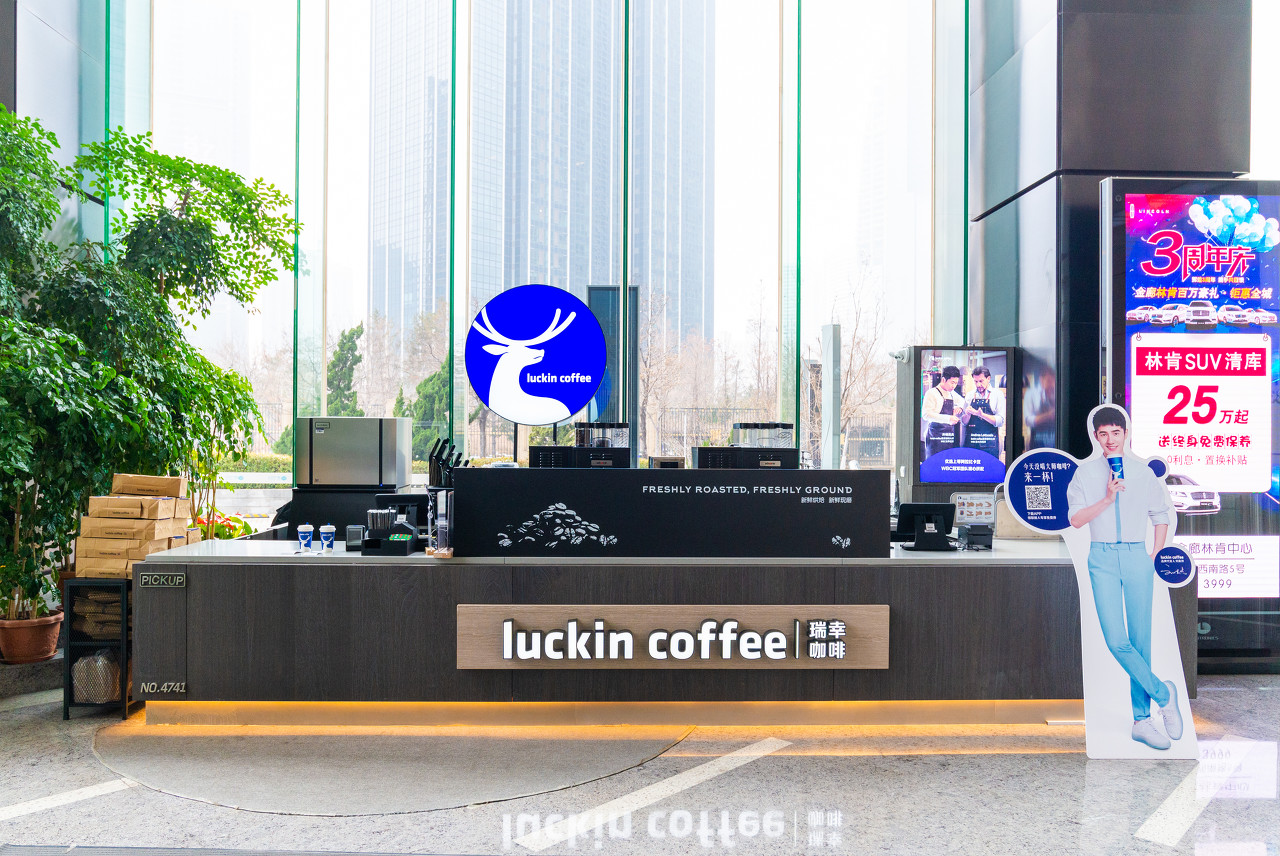China’s on-demand beverage chain Luckin Coffee booked RMB 870 million (USD 126.7 million) in total net revenues in the second quarter of this year, up by 698% year-on-year, according to the company’s press release on earnings on Wednesday.
That is driven by a significant increase in transacting customers, an increase in the average number of items purchased by transacting customers and higher effective selling prices, said CEO Jenny Zhiya Qian. The company’s cumulative number of transacting customers increased to 22.8 million from 2.9 million as of the end of the second quarter of 2018. During the second quarter of 2019, the company acquired 5.9 million new transacting customers.
Luckin Coffee has opened 2,973 bricks-and-mortar stores, including 2,741 pick-up stores [stores without seating], 123 relax stores [stores with seating and other amentities] and 99 delivery kitchens by the end of June.
Qian predicted the the company is on track to reach the store level break-even point during the third quarter of this year as Luckin has reduced store operating loss as a result of benefits of scale and increased bargaining power, operating efficiency from technology, and higher store throughput.
Store level operating loss in the second quarter was RMB 55.8 million (USD 8.1 million), decreasing from a loss of RMB 81.7 million in the second quarter of 2018.
However, the company still booked RMB 681.3 million (USD 99.2 million) in net losses, widening more than 100% from RMB 333 million in the second quarter of 2018, partly due to sales and marketing expenses, which reached RMB 390.1 million (USD 56.8 million), up 119.1% year-on-year.
Li Hui, whose VC fund backed Luckin Coffee at its early days and who is also a founding member for Luckin, told 36Kr in an interview that Luckin’s cost per cup of coffee was RMB 13 while the cost for its rivals was between RMB 21 and RMB 22.
He added that in theory, Luckin could earn the price gap as a profit but whether Luckin collected these profits or not depended on whether the company wanted the number of its users to stay at 18 million (the number of users when he gave the interview) or grow it to 80 million or even 100 million.
He indicated that Luckin chose to forgo the potential earnings from this price gap and invest this into expanding the scale of its user base instead, similar to a subsidy, dismissing critics who said that Luckin was a cash-burning company like bike-sharing company Ofo.
